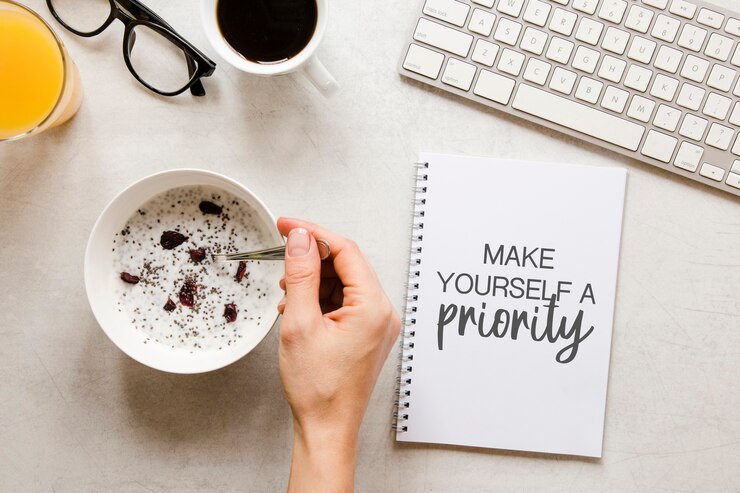After a long day of meetings, errands, and to-do lists, few things feel as satisfying as the sound of your own bed calling to you. Yet in a world that often prioritizes hustle above health, rest can seem like a luxury rather than a non-negotiable part of life. But here’s the thing – rest isn’t just about feeling good; it’s about functioning at your best. Whether you’re a career-driven professional, a health-conscious individual, or someone who’s on a wellness journey, optimizing how you rest could be the key to better productivity, mental clarity, and overall happiness.
This blog explores the science of rest, its role in different aspects of life, and actionable tips to help you truly have a nice rest of your day—every day.
The Science of Rest
Sleep Stages and Their Impact on Health
Rest and sleep are often used interchangeably, but not all rest is the same. Sleep, in particular, plays a pivotal role in how your brain and body recover. During sleep, your body cycles through different stages, each with specific benefits.
- Non-REM Sleep (Stages 1-3): These stages help restore physical health. They enhance tissue repair, immune function, and muscle growth.
- REM Sleep (Stage 4): Known as dream-filled sleep, REM enhances memory consolidation, creativity, and emotional regulation.
Failing to cycle through these stages adequately adds up to what scientists call “sleep debt”—and no amount of coffee can bail you out over time.
The Body’s Natural Sleep-Wake Cycle
Your body is programmed to rest rhythmically, thanks to the circadian rhythm, a 24-hour internal clock. This cycle is heavily influenced by light exposure, dictating when you feel alert and when you feel sleepy.
Melatonin, sometimes dubbed the “sleep hormone,” spikes in the evening as darkness sets in, signaling it’s time to wind down. Disruptors—like erratic schedules or excessive screen time—can throw this rhythm out of balance, damaging not just sleep quality but also mood and focus.
Striking the right balance comes down to working with your body’s clock rather than against it.
Rest for Working Professionals
Tips for Better Rest and Enhanced Performance
Working professionals often juggle 100 things at once, leaving rest on the backburner. Ironically, well-rested professionals are far more productive and efficient. Here’s how to optimize rest without interfering with deadlines:
- Schedule Your Sleep Like a Meeting
Treat rest as essential as your biggest work task. Commit to sleeping and waking up at similar times daily to stabilize your circadian rhythm.
- Take “Non-Sleep” Rest Breaks
A 15-minute break between tasks can clear mental fog. Use these moments to practice deep breathing or step outside for fresh air.
Managing Stress for Better Sleep
Stress from deadlines and projects can steal both peace of mind and quality sleep. Try these strategies:
- Create a Wind-Down Routine
Dedicate at least 30 minutes to decompress before bed. Read a book, drink herbal tea, or listen to calming music.
- Limit After-Hours Emails
Disconnecting from work notifications signals your mind it’s time to unhook from the stress of the day.
With thoughtful adjustments, working professionals can achieve peak performance without burning out.
Rest for Health Conscious Individuals
Building a Sleep-Friendly Home Environment
When it comes to rest, your surroundings matter more than you think. Here are some ways to optimize your home for better sleep:
- Darkness is Key
Invest in blackout curtains to block light that could interfere with melatonin production.
- Declutter Your Bedroom
Keep your room serene and minimalistic. A calm space encourages a calm mind.
- Regulate Temperatures
Sleep experts suggest a cool room (65°F or 18°C) is optimal for quality sleep.
How Rest, Diet, and Exercise Work Together
Rest, diet, and exercise are the power trio of wellness. Neglect one, and the others suffer.
- Exercise Smartly
Avoid high-intensity workouts late at night, as it elevates your heart rate and can disrupt sleep. Instead, try yoga or a light evening walk.
- Avoid Heavy Meals Before Bed
A nutrient-dense but light dinner can improve digestion and reduce sleep disturbances.
- Prioritize Hydration (but time it well)
Don’t overdo liquids right before bed to minimize trips to the bathroom.
Small, intentional changes make a big difference when you aim to truly have a nice rest of your day.
Rest for Wellness Enthusiasts
Mindfulness and Meditation for Better Rest
For those enthusiastic about holistic wellness, mindfulness is a game-changer for achieving deep, meaningful rest.
- Try Guided Meditation
Apps like Calm and Headspace offer pre-sleep meditation sessions designed to slow racing thoughts.
- Practice Gratitude
Journaling three things you’re grateful for each night can shift your focus from stress to positivity.
Striking Balance Between Work, Rest, and Play
Wellness isn’t just about exercising or eating clean—it’s about balancing life’s demands with intentional downtime and leisure.
- Adopt the 8-8-8 Rule
Dedicate 8 hours to work, 8 to rest, and 8 to leisure or personal projects.
- Infuse Joy in Rest
Sometimes rest doesn’t mean sleep. Allow yourself time for reading a favorite book or pursuing hobbies guilt-free.
Pro tip for wellness seekers? Think of rest as an essential dimension of self-care, not just an afterthought.
Make Rest Your Superpower
Rest isn’t a luxury; it’s a secret weapon for maximizing productivity, health, and happiness. Whether you’re striving to climb the corporate ladder, become your healthiest self, or live a more mindful life, prioritizing rest is the foundation for success.
Start small. Create your winding-down ritual, adjust your bedroom for better sleep, or take that one overdue meditation class. The real magic happens when you discover what works best for you. After all, no one strategy fits all.
By making quality rest a core part of your lifestyle, you’ll not only feel more rejuvenated daily but also create the space to live and work at your fullest potential.


